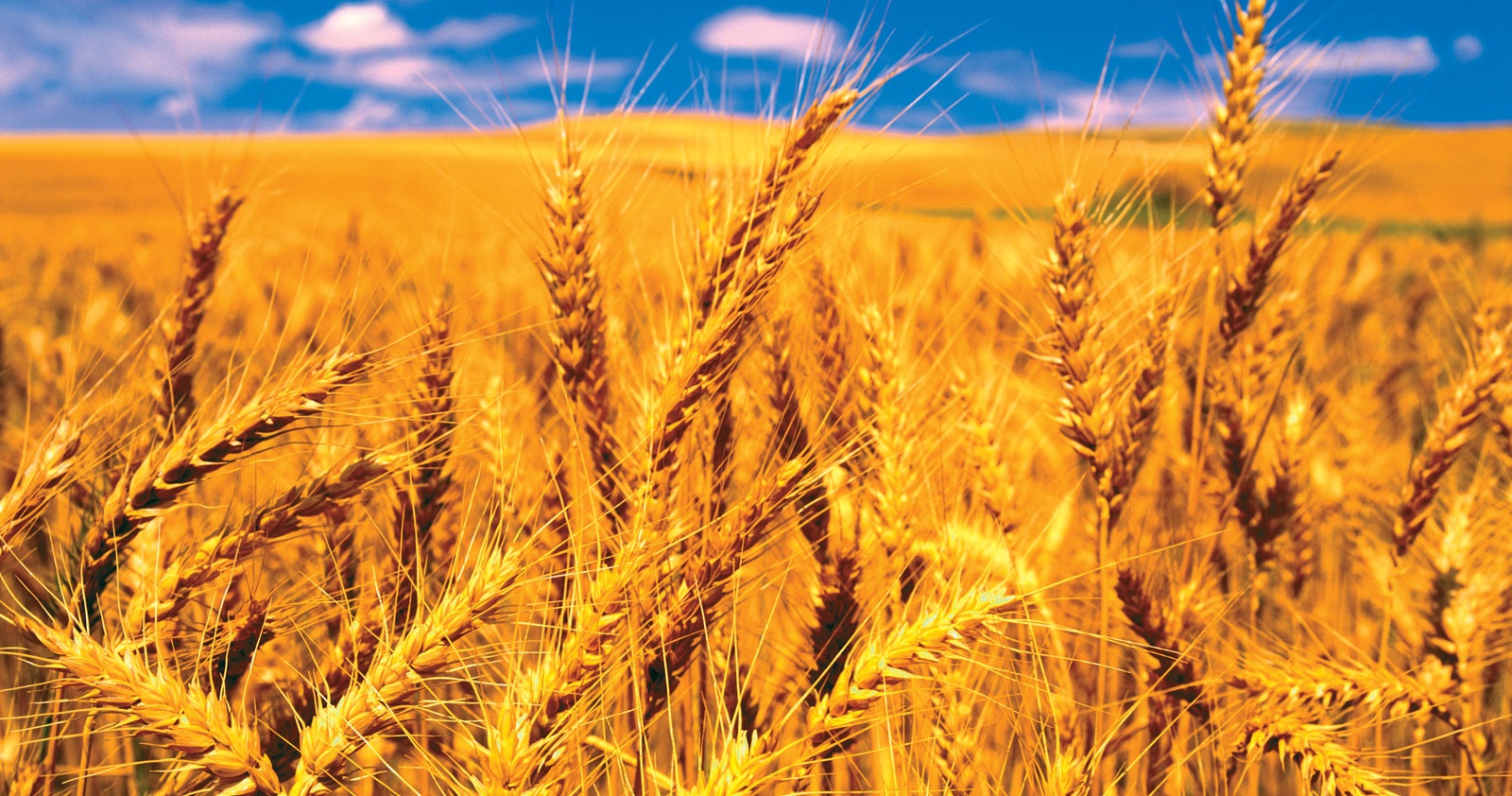Why the wheat price is exploding now – and what that means

The wheat price hits new records on the stock exchanges – cents could soon make the difference between life and death for millions of people. An immediate halt to exports in India is driving prices up further.
Wheat becomes a scarce commodity. Wheat prices rose to a new record on Monday: a ton of wheat cost 435 euros in European trade that morning. German companies are also feeling this. Importers paid more for grain imports last week than they have in ten years.
It’s an explosive mixture that’s driving up grain prices. The consequences are dramatic: In the richer countries, prices could rise, some products may not be on the shelves, in the poorer countries of the world there is a risk of famine and riots, Rafaël Schneider from Welthungerhilfe recently warned in an interview with t-online. And in Europe, too, the effects could be drastic. On Tuesday, the head of the British central bank, Andrew Bailey, warned of “apocalyptic” food prices, including in Great Britain (read more here)
Three main reasons are currently responsible for the dramatic situation on the wheat market:
War in Ukraine: Russian troops sabotage and block Ukrainian wheat exports
Export bans in India, the world’s second largest wheat producer
Bad weather conditions and forecasts in other growing countries, such as the USA
Russian troops block wheat shipments
The war is having a massive impact on grain cultivation and exports in Ukraine and can be seen as the main driver of rising wheat prices. Because next to Russia, the country is one of the largest wheat exporters in the world. Many countries in Africa and the Middle East depend on supplies from the region.
Russia’s war of aggression has disrupted these global food supply chains: 25 million tons of grain are stuck in Ukraine, Russian troops are blocking ports and sea routes. However, a large part of the Ukrainian grain is exported by ship. Transport by train is more laborious, less worthwhile and currently hardly possible because Russian troops also target railway lines.
In addition, the war means that many farmers are unable to cultivate or harvest their land. And according to Ukrainian reports, the Russian soldiers are supposed to be deliberately sabotaging farmers in eastern Ukraine. The Ukrainians accuse the Russians of stealing agricultural equipment such as tractors – and even stealing hundreds of thousands of tons of wheat from the country.
Putin could force Ukraine out of the market
The extent to which these allegations are true is difficult to assess based on the information available in the war zone, but the United Nations consider the allegations against Russia to be credible. Russia benefits greatly when Ukraine cannot export wheat.
In this way, Putin could oust Ukraine as one of the biggest competitors on the global market and permanently weaken it. If it cannot export, Putin will fill the gaps – and once the war is over, Ukraine may not have a place in the market.
For the world market, Putin’s strategy initially means a significant shortage – for this year and, in perspective, also for the coming year if the war continues. And when there is less wheat for sale, it drives up prices.
However, the war in Ukraine is not the only reason for the current price increases – other factors are further aggravating the situation on the market. Heat waves and periods of drought endanger food security in many regions of the world.
For example, wheat plants in the USA are in the worst condition they have been in 26 years. The USA is still expecting a crop surplus of 5 percent compared to the previous year, but Commerzbank’s commodities experts believe it is realistic that the USA will soon have to change their forecasts in view of the weather conditions.
India itself fears for food security
Like India. For weeks, the country has been suffering from a severe heat wave that is endangering the country’s harvest. Now the government is acting. She imposed an immediate export ban on wheat.
In itself, India does not play a leading role on the world market. Although the country is the second largest wheat producer in the world, it is not one of the largest exporters in the world market. Rather, in recent years, India has consumed a large part of its harvest itself.
In view of the bottlenecks in Ukraine, however, India had announced that it would export ten million tons of wheat. This would have been a relief, especially for the poorer countries in Africa, Asia and the Middle East, which depend on exports from Ukraine. The world market had also eased somewhat at the prospect of India filling part of the gap left by Ukraine in the market.
Now the export ban that India imposed over the weekend with immediate effect is having the exact opposite effect. The market is reacting very tensely to the renewed shortage of supply. Prices continue to skyrocket. India was forced to impose the export ban in order to guarantee food security despite domestic heat waves.
The concern is not unfounded. Within the past few weeks, the prices for wheat and flour have increased by 20 to 40 percent in some parts of the country. Some farmers preferred the prices to sell to the world market rather than to the government.
There is a risk of a “catastrophic famine”
India’s move drew a lot of criticism from the international community. Agriculture Minister Cem Özdemir recently said at the G7 meeting in Stuttgart that the country must live up to its responsibility as a G20 country. The G7 countries appealed to keep the markets open.
Yemen’s largest wheat importer, HSA Group, warned on Monday that the sharply rising wheat price could bring starvation, especially for poorer people. In view of skyrocketing prices, there are warnings of a “catastrophic famine” in the civil war country. Without swift action, hundreds of thousands of people would suffer extreme hunger within a few months, the company said.
According to the World Food Program (WFP), up to 19 million people in Yemen, where civil war has been raging for seven years, already do not have enough to eat. The HSA Group is calling on the international community for help to prevent a disaster across the country.
Russia could make poor countries dependent
Ironically, Russia could be a ray of hope for poor countries. Because Russia had also imposed an export ban on wheat, but in view of an alleged record harvest this year held out the prospect of resuming exports. Russia could harvest up to 87 million tons of wheat this year, Putin said at a government meeting last week.
This aid to poor countries is not accidental or free of charge. “As a result of the war, Russia could usurp dominance of the world grain market and bring some countries in Africa, the Middle East and Asia into food dependency – much like Germany is dependent on Russian gas,” says Rafaël Schneider from Welthungerhilfe in an interview with t -on-line.

